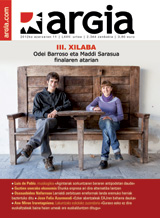Dismantling lies against Venezuela
The Western media is dedicated to squandering Venezuela’s political system and the prestige of its president for a long time. But why is this country so politically important that it has 25 million inhabitants and not, for example, Mexico, that it has 112 million inhabitants? The answer is not demagogic simply: the economic powers of the world fear Venezuela’s model. In fact, what did not allow Salvador Allende to do so is for Chávez to do so: in a corrupt, democratic and economic system, he has come to power through elections, he has regained control over the nation’s sources of wealth, he has put in place policies for the redistribution of wealth and has substantially improved the living conditions of the most vulnerable in society. Moreover, it has contributed to the implementation of similar transformative processes in other Latin American countries.
Faced with these realities, it is becoming increasingly difficult to support the media lies that have been built against Venezuela. Few are questioning the social advances that Venezuela has made in Venezuela today. This has been confirmed by the UN institutions. But recognition comes not only from outside, but it has also had to be indirectly assumed by the opposition at home. When the right-wing paradigm has been imposed in Europe, that is, when the political debate has imposed the need to show “moderation” and “economic responsibility” between the right and the left, the left-wing paradigm has prevailed in the political debate in Venezuela. That is why, during the election campaign, Capriles, who has been a candidate for the opposition, said that his model was Lula’s Social Democratic policy. However, Lula has opted for Chávez as further proof of the complicity that exists between the plural left of Latin America.
One of the greatest lies that have been repeated about Venezuela is that relating to freedom of expression. Anyone who's been in the country knows that the diversity in the local media is broader than ours. Moreover, in general, the absolute majority of newspapers, radios and television stations around the world are opposed to Chávez’s candidacy. 80% of the press is written by the opposition, including two of the most important newspapers. In radios and televisions the situation is similar, most of the channels are private and get about 90% of the audience. In fact, in most of the world's political systems, economic powers, the rich, have the ability to create media and defend their ideology and interests through them. On the contrary, the poor and the lower classes have no money to create mass media to defend their interests. In Venezuela, fortunately, the public media do not defend the interests of the business authorities, but other alternatives, as shown by the results of the October elections.
The presidential elections have once again insisted that Venezuela is one of the most densely democratic political systems in the world. Comparison is simple. In Western democracies, elections are often chosen between two candidates. The point is that it is very difficult to determine where the differences are, especially in the economic sphere. In Venezuela, however, politics is in capital letters. Chávez and Capriles have represented two very different projects for the country and, therefore, the share has been 81%. People are approaching the ballot box when something is chosen. n
The current situation requires a thorough analysis of what is behind titles, demonstrations, the manipulated dissemination of some facts, the dark concealment of others and the disguised propaganda of analysis in most mainstream media. The situation requires that superficial... [+]
Ten years have passed since 5 March 2013 and we cannot forget this gigantic commander of the peoples.
I don't really like the military. Especially in capitalist and career states. However, there are those who carry within the wishes of the people and have committed themselves to... [+]
























